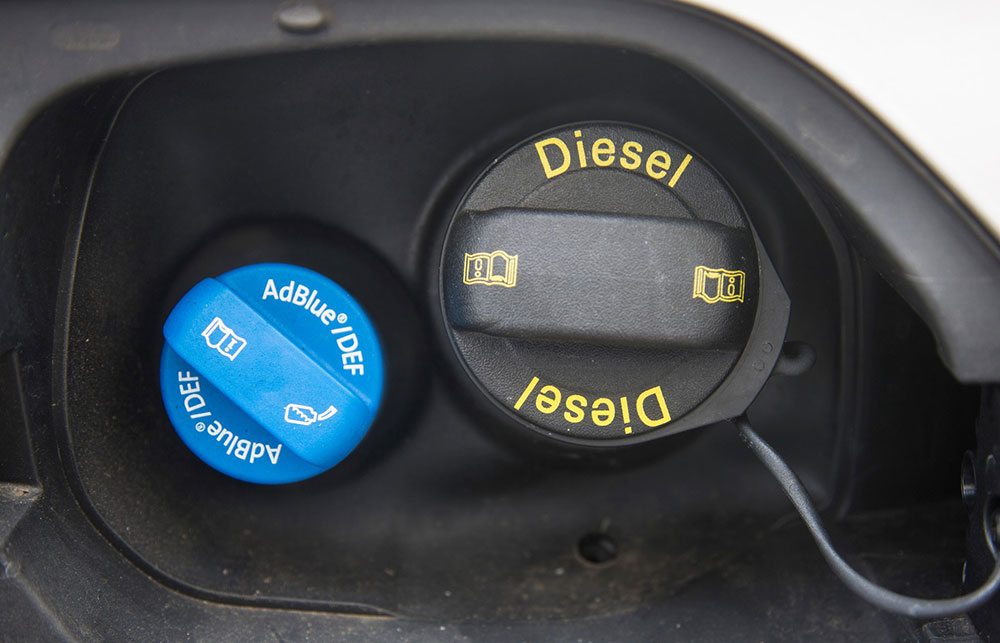AdBlue blues continue for transport industry
Tight supply of essential diesel exhaust emissions additive sends prices skyrocketing.

If you’ve been scanning the headlines recently and seeing stories about a shortage of AdBlue and the adverse impacts this may have on our road transport sector, you might well be wondering, “what the hell is AdBlue and what’s all the fuss about?”
AdBlue is the proprietary name for a widely used urea-based diesel exhaust fluid (DEF) that acts as an anti-pollution control measure in many modern diesel engines.
Injecting AdBlue into the exhaust system of certain diesel-powered vehicle helps limit the amount of toxic nitrogen oxides released in the exhaust gases.
In Australia, AdBlue is used mainly by trucks but there is a small percentage of diesel-powered passenger vehicles that also use the technology, including vehicles made by Audi, BMW, Ford, Jaguar, Land Rover and Volkswagen.
The AdBlue additive in passenger vehicles is typically poured into a separate filler located alongside the main diesel fuel tank filler and is used at a rate of roughly one litre per thousand kilometres.
This means it is usually refilled by your dealer or mechanic during scheduled vehicle servicing.
However, because drivers may also need to top up the system themselves from time to time, AdBlue is sold at service stations, vehicle dealers and automotive retail outlets.
Impacts on price
Because AdBlue is urea-based and urea is a nitrogen-based fertiliser that requires a lot of natural gas to manufacture, its price is tied to the price of oil.
If the price of oil goes up, as it did significantly during 2021, then the price of urea also goes up.
Coupled with a global shortage of refined urea, due to manufacturers having either shut down production due to staffing or supply chain issues or being directed to focus their supply on domestic markets, this has led to a classic supply and demand imbalance, which is driving up prices in Australia.
China is one of the world’s largest producers of urea and supplies around 80% of Australia’s requirements.
But faced with the rising global prices of fertiliser, China has capped exports to try and keep a lid on prices in its domestic economy.
This has created something of a feedback loop, with even less supply driving even higher prices in Australia.
In December, the Australian Government responded to the looming shortage of AdBlue by securing additional supply from Indonesia and striking a deal with local fertiliser manufacturer Incitec Pivot to significantly increase domestic production of the technical-grade urea required to make AdBlue.
A Federal Government taskforce has also been established to seek other supply avenues.
Transport industry hit hard
Meanwhile, the road transport industry is bearing the brunt of the AdBlue shortage and price rises because trucks are the heaviest users of AdBlue and its use in trucks is mandated for emissions purposes.
The ABC reported the price of AdBlue had quadrupled in some parts of the country and there were reports of price gouging in some areas.
Despite this, there are currently no expected issues with diesel-powered light vehicles, including 4x4s, with most of the manufacturers of vehicles requiring Adblue confirming they have enough stock available through dealers to carry through well into 2022.
So, while it’s unlikely that the country will run out of AdBlue altogether and the shortage is not going to significantly impact passenger vehicles in the short term, the soaring costs of AdBlue does have the potential to affect the cost of everyday goods like groceries, due to higher transport costs.
If you are the owner of a vehicle that requires Adblue and are concerned about its availability, it’s recommended that you first consult your dealer.
This would be especially prudent if holiday road travel is planned and there is any uncertainty about your vehicle’s DEF tank levels.
Related topics
Things to note
The information in this article has been prepared for general information purposes only and is not intended as legal advice or specific advice to any particular person. Any advice contained in the document is general advice, not intended as legal advice or professional advice and does not take into account any person’s particular circumstances. Before acting on anything based on this advice you should consider its appropriateness to you, having regard to your objectives and needs.
Insurance Products (excluding Travel Insurance) are issued by RACQ Insurance Limited ABN 50 009 704 152 (RACQI) and arranged by its agent, RACQ Distribution Services Pty Ltd (RDS) ABN 35 116 361 650, AFSL 567130 and RDS' authorised representatives (including RACQ Operations Pty Ltd ABN 80 009 663 414, AR No. 234978 (RACQO). Conditions, limits and exclusions apply. RDS and RACQO are in the RACQ group of companies. One of the companies in the RACQ group of companies has a minority shareholding in RACQI.
RDS and RACQO have not taken your personal objectives, circumstances or needs into account when preparing advice regarding insurance products and you will need to consider whether the advice is appropriate for you. Read the Product Disclosure Statement (PDS) and any applicable Supplementary PDS before making a purchase decision on this product. You can also access our Target Market Determinations on this website. RDS receives a commission from RACQI for the policies it arranges. RACQO receives fees paid for services it provides to RDS. Further details about remuneration are available on request prior to purchasing.
Banking and loan products issued by Members Banking Group Limited ABN 83 087 651 054 AFSL/Australian credit licence 241195 trading as RACQ Bank. Terms, conditions, fees, charges and lending policies apply. This is general advice only and may not be right for you. This information does not take your personal objectives, circumstances or needs into account. Read the disclosure documents for your selected product or service, including the Financial Services Guide and the Terms and Conditions, and consider if appropriate for you before deciding.
Except for RACQ Bank, any RACQ entity referred to on this page is not an authorised deposit-taking institution for the purposes of the Banking Act 1959 (Cth). That entity’s obligations do not represent deposits or other liabilities of RACQ Bank. RACQ Bank does not guarantee or otherwise provide assurance in respect of the obligations of that entity, unless noted otherwise.
RACQ Bank subscribes to the Customer Owned Banking Code of Practice which establishes higher standards than the law requires. The Code reflects modern consumer expectations and developments in approaches to issues such as consumer vulnerability, guarantors, and supporting customers through financial hardship. Please read our Customer Owned Banking Code of Practice page for more information.
RACQ Operations Pty Ltd (ABN 80 009 663 414 AR 000234978) and Members Travel Group Pty Ltd (ABN 45 144 538 803 AR 000432492) are acting as an Authorised Representative of the issuer of the insurance, Tokio Marine & Nichido Fire Insurance Co., Ltd. (ABN 80 000 438 291 AFSL 246 548). Any advice set out above is general in nature only, and does not take into account your objectives, financial situation or needs. Before purchasing any travel products, please consider the RACQ Travel Insurance Product Disclosure Statement (PDS) and the Target Market Determinations (TMDs) that apply to these products. Whilst the PDS outlines the Terms and Conditions of these products, the TMDs outline the intended class of customers that comprise the target market for these travel products. This will allow you to consider which products best suit your objectives, financial situation and needs and consider the products appropriateness to your personal circumstances. TMDs also outline matters involving the distribution and the review of these products. The PDS, Supplementary PDS and TMDs for each travel product can be found here.
